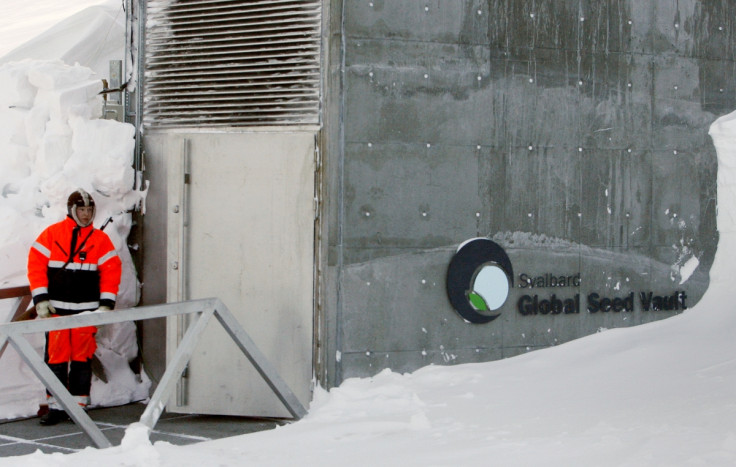Arctic 'doomsday' seed vault opened as Syrian war on Isis impacts GMO research

Scientists have had to resort to the "doomsday" seed vault in the Arctic to continue research on resilient GMO seeds. A relentless drought coupled with an ongoing civil war involving Assad loyalists with support from Russia, anti-Assad rebels, and the rampaging Islamic State (Isis) extremists, means there is a shortage of seeds from the region to be used in research.
The Svalbard Global Seed Vault was established in 2008 by the Norwegian government in the Arctic Archipelago. The massive vault contains many different types of seeds as a backup in case of global catastrophe. Scientists have accessed the vault after operations were halted at the International Centre for Agricultural Research in the Dry Areas (ICARDA), a leading gene bank in Aleppo, Syria.
ICARDA had been in the process of developing seeds that could withstand the effects of soaring temperatures and drought. Last month 38,000 seed samples, of which there are around 860,000 in total, were sent to ICARDA's bases in Lebanon and Morocco for work to continue.
Some two thirds of the seed-types were strains, including wheat, lentil and chickpeas, from the Middle East and Africa, AP reported. These will then be modified by ICARDA and dealt to breeders, researchers and farmers.
ICARDA Director-General Mahmoud El-Solh told AP: "We can get, through crossing and breeding, traits that are tolerant to drought, tolerant to heat, tolerant to specific diseases and so forth."
Michael Koch, Global Crop Diversity Trust spokesman, added that this proves "that the global system of fail-safe backup works".
© Copyright IBTimes 2025. All rights reserved.






















